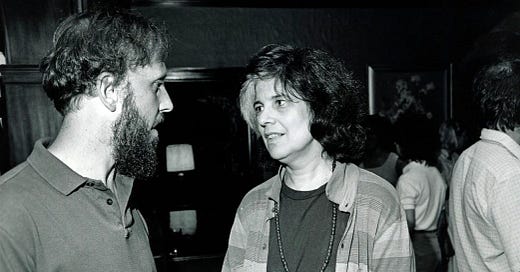Enemies, a love story
Can you continue a friendship with someone whose politics you find immoral or unethical?
Around fifteen years ago, lonely and insecure, going through a divorce while trying to find my intellectual footing as a critic and biographer, I received an unexpected gift: an invitation to join the New York Institute for the Humanities, an interdisciplinary group of academics, writers, and artists who gather regularly for a lunch meeting featuring a …
Keep reading with a 7-day free trial
Subscribe to Ghost Stories to keep reading this post and get 7 days of free access to the full post archives.



